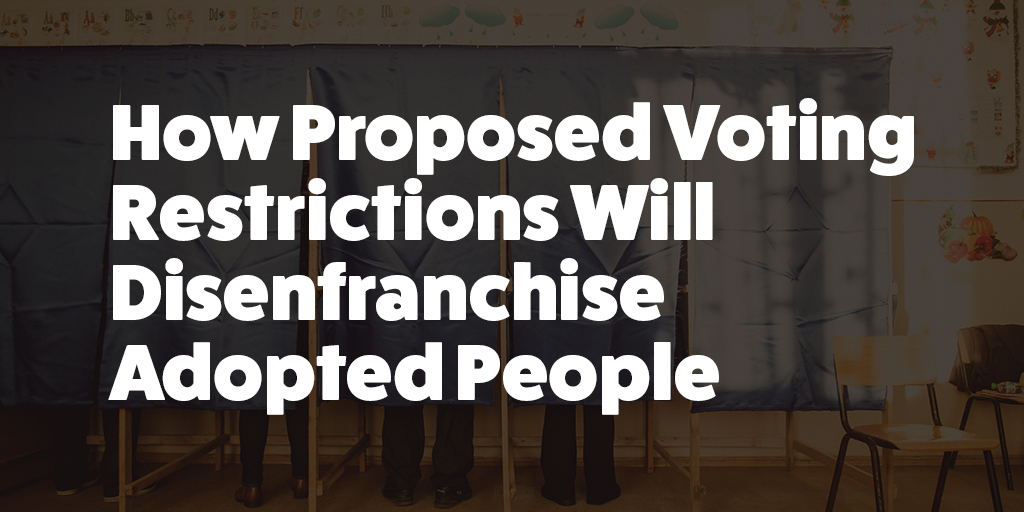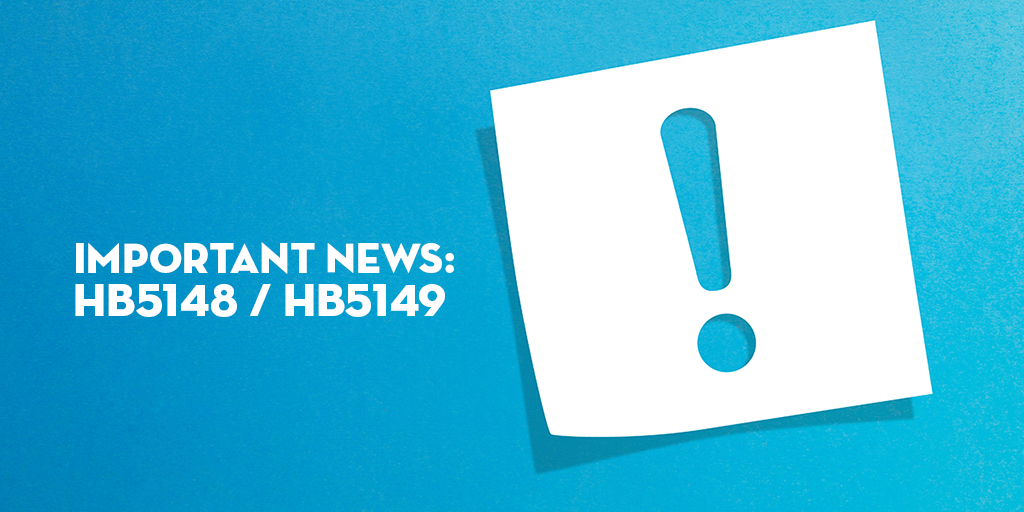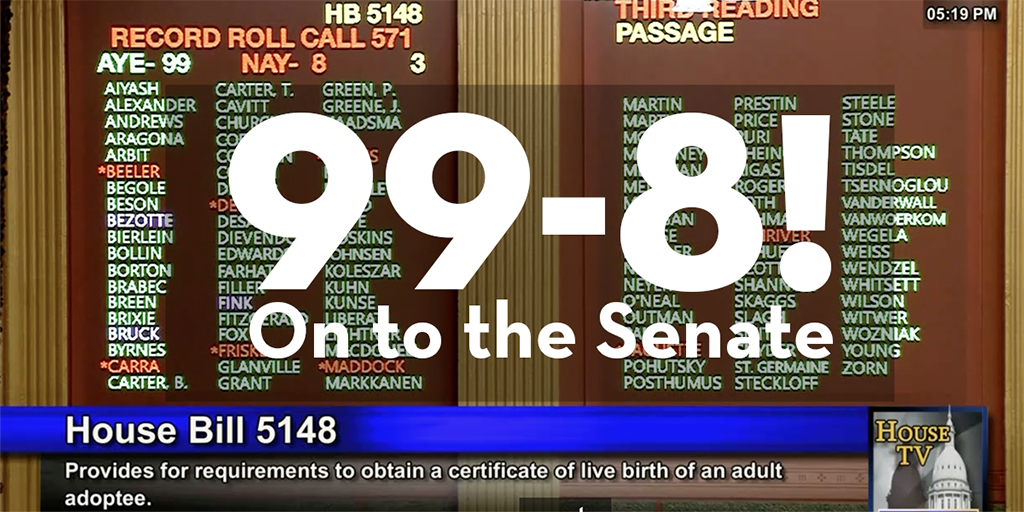Michigan House Bills 5148 and 5149, introduced on October 17, are tie-bar bills that repeal and simplify Michigan’s overly complex and inequitable system that currently restricts adult adopted persons from requesting and obtaining their own vital records. The two bills together reflect current reality, where social media, genetics, genealogical records, and societal norms have rendered human secrecy impossible, impractical, and specifically discriminatory against adopted people.
Here’s what each bill does.
- HB5148 amends Michigan vital records law so that all adult adopted persons and their descendants may request and obtain a copy of the adopted person’s original birth record. Such requests are made and fulfilled directly through the state registrar, without the need to involve additional state agencies or the court.
- Provides birthparents the option to file contact preference forms that inform adult adopted persons of the birth parents’ wishes concerning contact, whether contact directly, through an intermediary, or a preference for no contact. Birthparents may revise their preferences for contact at any time by filing a new contact preference form with the Department of Health. The contact preference form, if filed, accompanies any copy of the original certificate of live birth provided to the adult adopted person or the adult adopted person’s descendant.
- Provides a notice along with the copy of the original birth record informing the requestor of the existence of the central adoption registry and the potential availability of identifying information through use of the registry.
- Allows adult heirs and legal representatives of the adopted person to request a copy of the original birth record on behalf of the adoptee if the adoptee is deceased.
HB5149: Identifying Information and the Central Adoption Registry
- Consistent with similar state laws across the country, HB5149 separates the operation of the state’s Central Adoption Registry, which facilitates sharing of contact and identifying information between birth family members, from the vital records office’s core function to provide birth and other vital records to qualified requestors and registrants.
- Makes release of identifying information through the Central Adoption Registry equal for all adult adoptees, no matter the date their birthparents terminated parental rights. This eliminates a current “donut hole” in the law that discriminates against adult adoptees whose birthparents’ parental rights were terminated on or after May 28, 1945, and before September 12, 1980.
- Concentrates on the core function of the Central Adoption Registry. CAR facilitates release of contact and reunion-related identifying information, specifically the most recent address of birthparents. Such identifying information, known as “contact information,” is provided only if it is available and it is not subject to a previously filed denial of release. It is not the same information that appears on an original birth record.
- Preserves current denials of release for any denials filed prior to July 1, 2024. A denial of release, however, will not interfere with the adult adopted person’s ability to request and obtain a copy of their own original certificate of live birth through the separate vital records bill.
- Requires courts, if necessary, to respond within 14 days to requests from the vital records office to assist in matching amended birth records with original birth records.
- Makes adoption records public 100 years after the adopted person’s date of birth.
- Requires the Department of Health and Human Services to make reasonable efforts to notify members of the public who may be affected by changes in the law, not only governing the release of identifying and non-identifying information but also an adoptee’s ability to request and obtain a copy of their own original certificate of live birth.
More Information and Resources
- HB4158/HB4159: An Overview
- FAQ: Michigan’s Adoptee Rights Bills
- Current Michigan Law: The Basics
- Resources: Print Materials
How a Legislator’s Proposed Voting Restrictions Will Disenfranchise Adopted People
A legislator’s effort to enact strict proof-of-citizenship voting requirements will disenfranchise thousands of Michigan adoptees. Here’s how.
Continue Reading How a Legislator’s Proposed Voting Restrictions Will Disenfranchise Adopted People
MARC Pauses Support for the Bills
As a coalition we have decided to withdraw support for HB5148/HB5149
House Passage!
The Michigan House of Representatives passed HB5148/HB5149 on November 9, 2023, by a vote of 99-8-3.
Michigan, We Have Liftoff
The bipartisan legislative package does one thing: restores birth record rights for all Michigan-born adopted people.





This is so good!!! Congratulations!!!
We are working on this in California!
Thank you Paul! We are keeping our eyes on the efforts of the California Alliance for Adoptee Rights (CAAR) and wishing you all the best <3
This is wonderful, I’m 74 years old. I’ve been thinking I will die without the knowledge of my adoption.
I support Legislation to past quickly as time is running out for me.
Thank you Pat, while we also hope that this legislation will pass quickly, we are encouraging those who are desperate for information to connect with a search angel to see if there is a way to get you what you need outside of our current inaccessible system. In the meantime, we are working hard to restore the rights to adopted adults in Michigan with adoptees just like you in mind. <3
I relinquished my daughter in 1968 in Marquette County, Michigan. I found her–no help from Michigan–in 1986 and we have been in each other’s lives since. She has a great adoptive family. She has two families and it’s important to her to know and belong to both. This past year, she gifted me with a copy of her original birth certificate which I have always wanted to have. But she had to go through all the steps to petition the court where her adoption was finalized. And both she and I had to appear before the judge. I haven’t lived in Michigan since 1971. These bills should be passed. They are way past due. All people should have access to all of their own records, including original birth certificates. Preventing that just makes lives more difficult. It doesn’t prevent people finding one another.